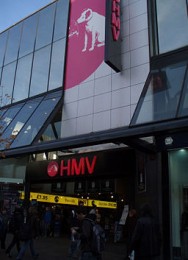 Software King of the World, Microsoft, has hit back at Consumer Report claims that its Surface tablets are so badly made that they cannot last longer than a couple of years.
Software King of the World, Microsoft, has hit back at Consumer Report claims that its Surface tablets are so badly made that they cannot last longer than a couple of years.
Consumer report said that it refuses to endorse any of Microsoft’s laptops due to ‘two-year breakage rates of 25 percent’.
Consumer Reports said in an article that it was removing its ‘recommended’ status from four of Microsoft’s Surface devices – Surface Laptop (128GB and 256GB) and Surface Book (128GB and 256GB) – after its research found that 25 percent of owners will experience problems in the first two years.
It said it would not be recommending any of Microsoft’s Surface devices because the estimated breakage rate for its laptops and tablets was higher than most other brands.
“The differences were statistically significant, which is why Microsoft doesn’t meet CR’s standards for recommended products.”
Consumer Reports tested and scored the devices on a range of factors including display quality, battery life, speed and ergonomics. The data came from the assessment of over 90,000 devices purchased between 2014 and the beginning of 2017.
It also applies to the Surface Pro, although Consumer Reports did praise the gear for its performance.
Microsoft was cross and claimed that the products’ fail rates are far lower than CR’s estimates.
Writing in his bog, the Volish corporate vice president of devices Panos Panay said: “While we respect Consumer Reports, we disagree with their findings. Surface has had quite a journey over the last few years, and we have learned a lot.
“In the Surface team we track quality constantly, using metrics that include failure and return rates. Both our predicted one-to-two-year failure and actual return rates for Surface Pro 4 and Surface Book are significantly lower than 25 percent.
“Additionally, we track other indicators of quality such as incidents per unit, which have improved from generation to generation and are now at record lows of well below one percent.”
The Surface family hit the headlines in June when Greenpeace and iFixit scored both Microsoft’s Surface Book and Surface Pro 5 one out of 10 for reparability mostly because it was glued together and impossible to fix without destroying.



















